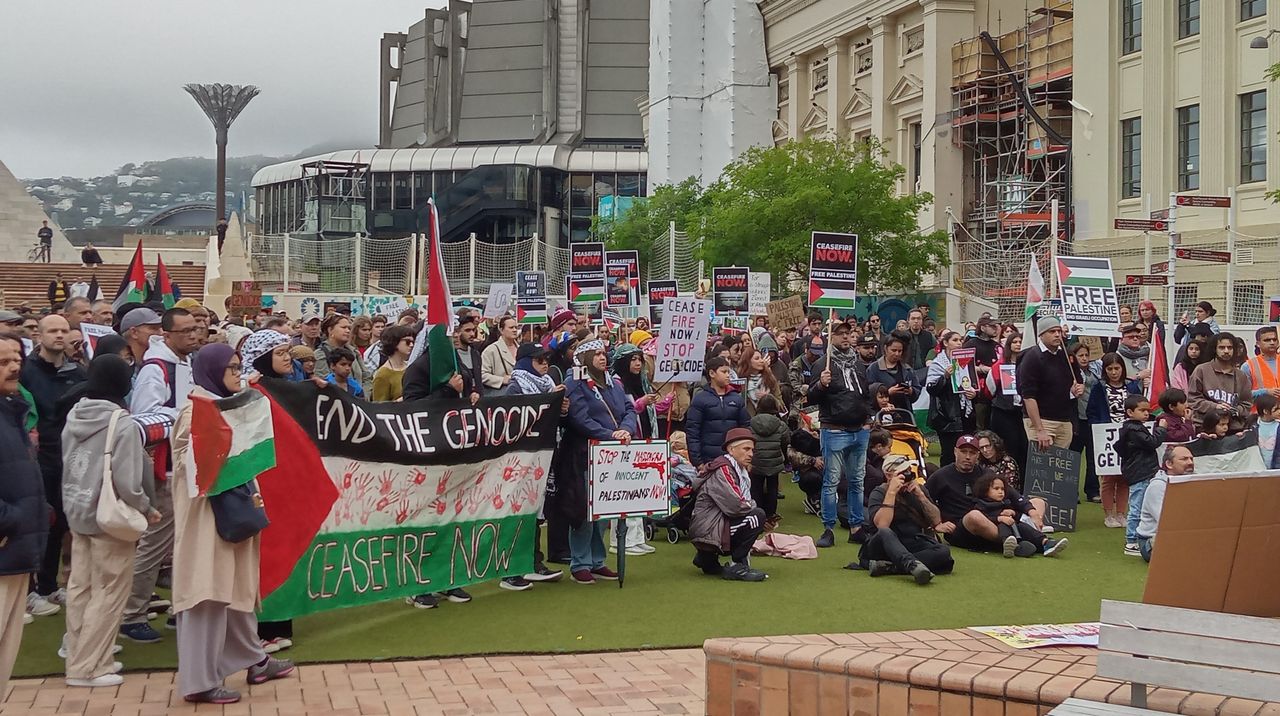From Washington to the World: On January 13, 2024, a powerful global movement emerged as thousands flooded the streets of Washington and various cities worldwide to express unwavering solidarity with the Palestinian cause.
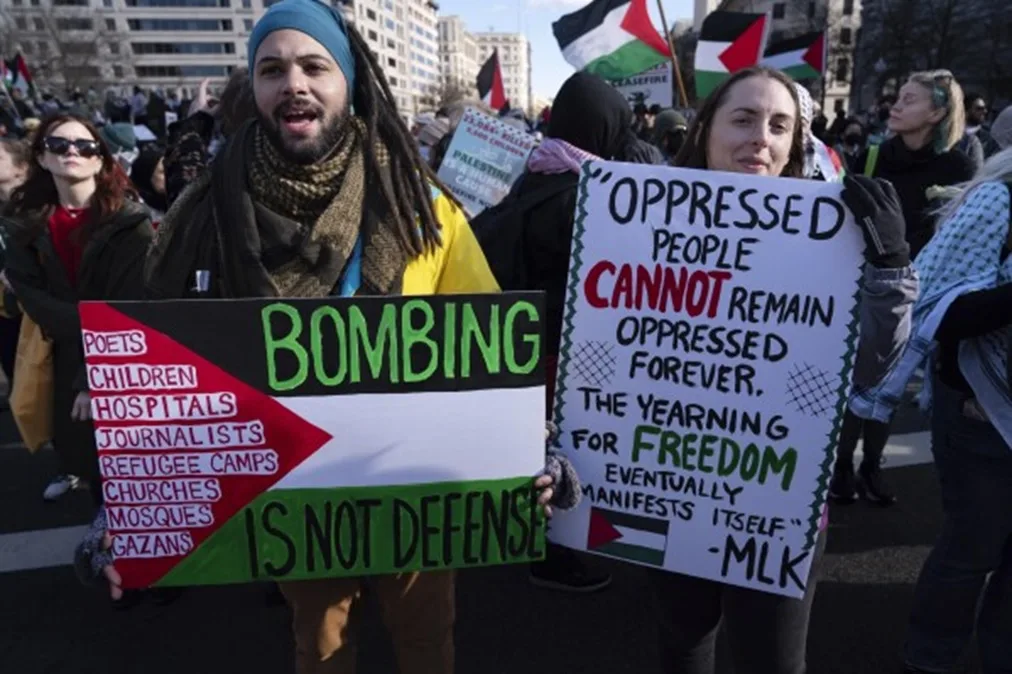
Organized by a coalition of civil society groups, human rights organizations, and political parties, this global day of protests served as a poignant demand for an end to the Israeli occupation and the oppression of the Palestinian people.
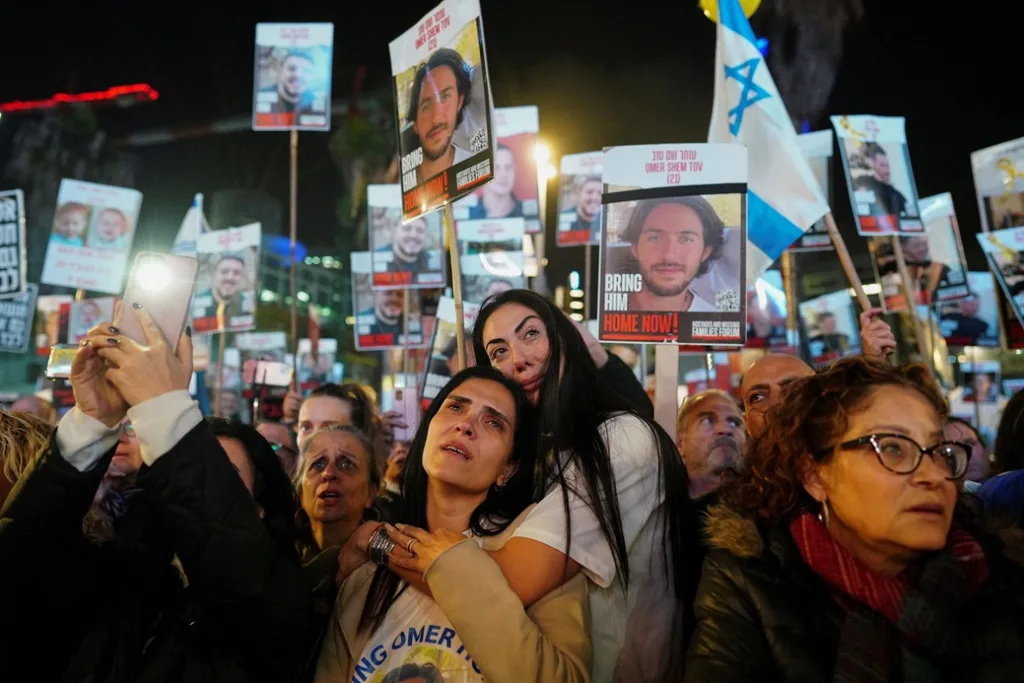
A Global Call to Action
The day of protests, marked by diverse participants from various backgrounds, ages, religions, and ethnicities, conveyed a united front for justice.
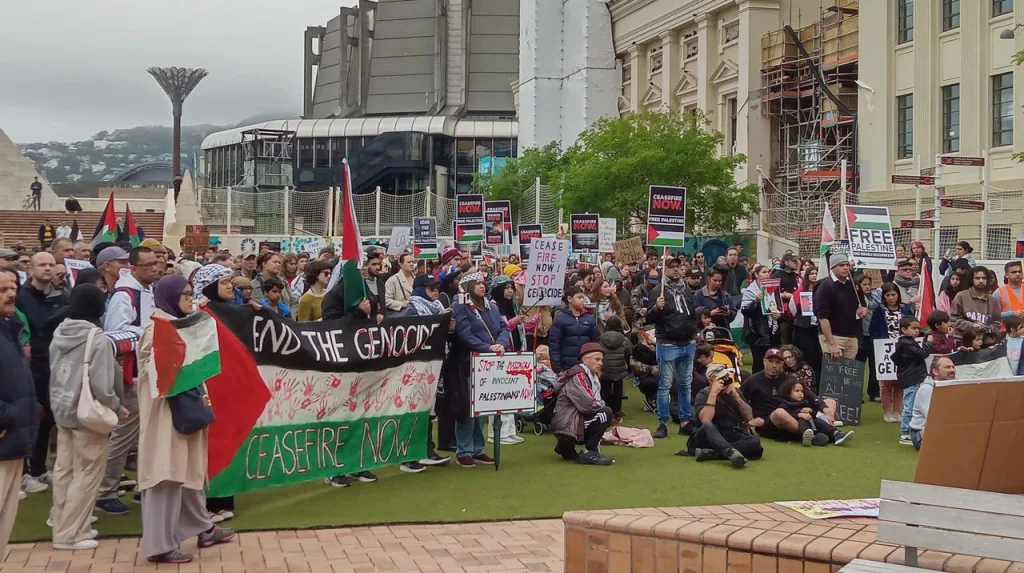
Banners, flags, and placards adorned with compelling slogans such as “Free Palestine,” “Stop the Apartheid,” “Boycott Israel,” and “Justice for Palestine” echoed the collective outcry for change. The air resonated with songs and slogans in Arabic, English, and other languages, encapsulating the global support for the Palestinian struggle.
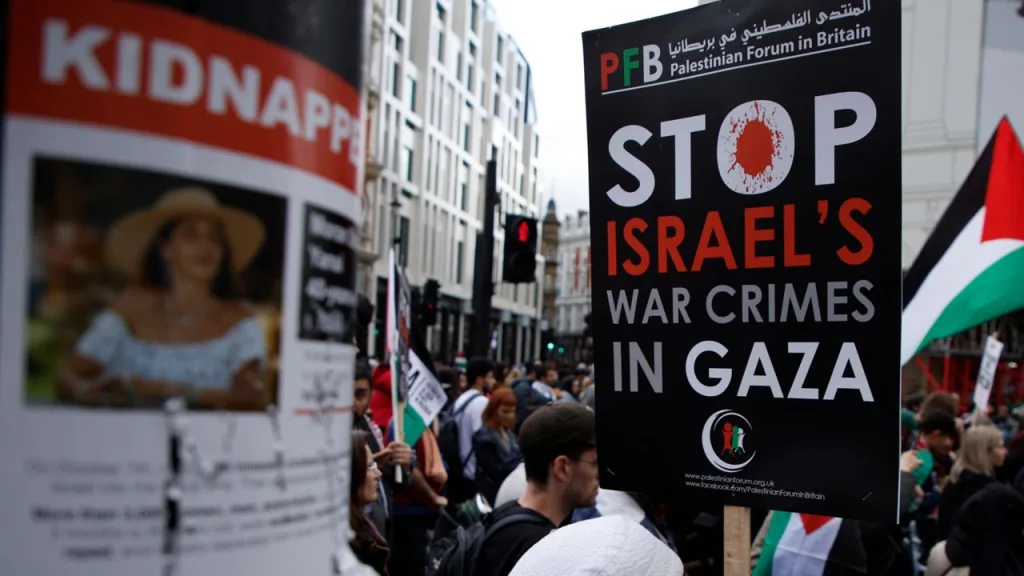
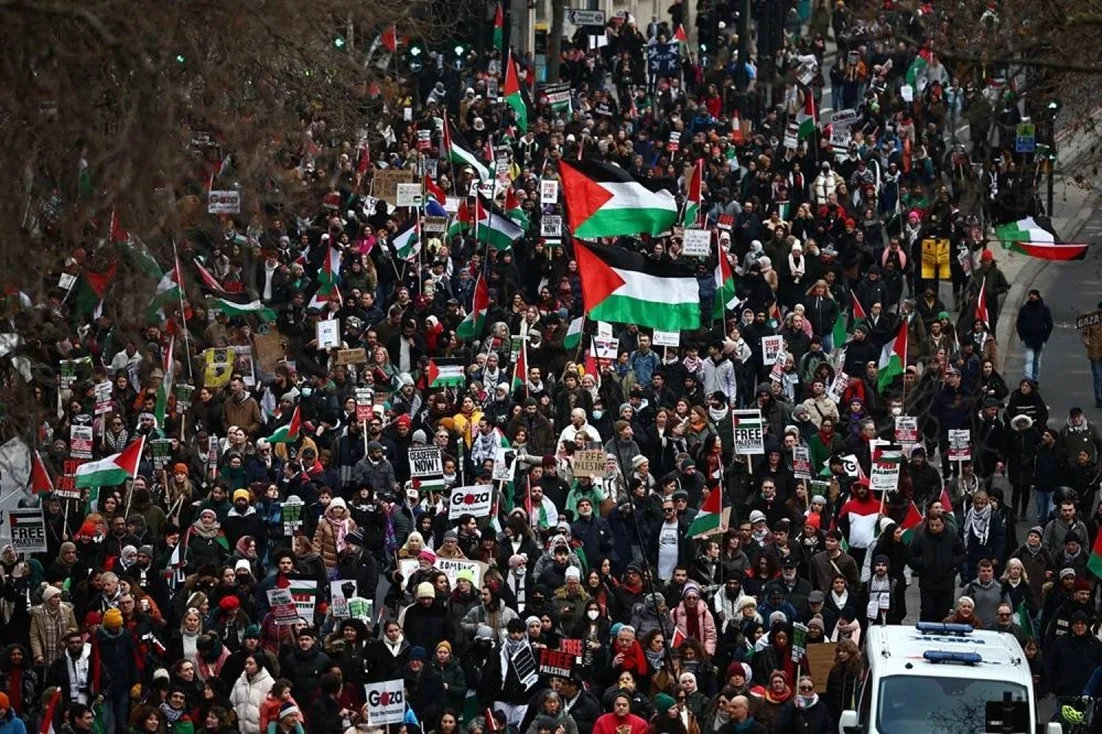
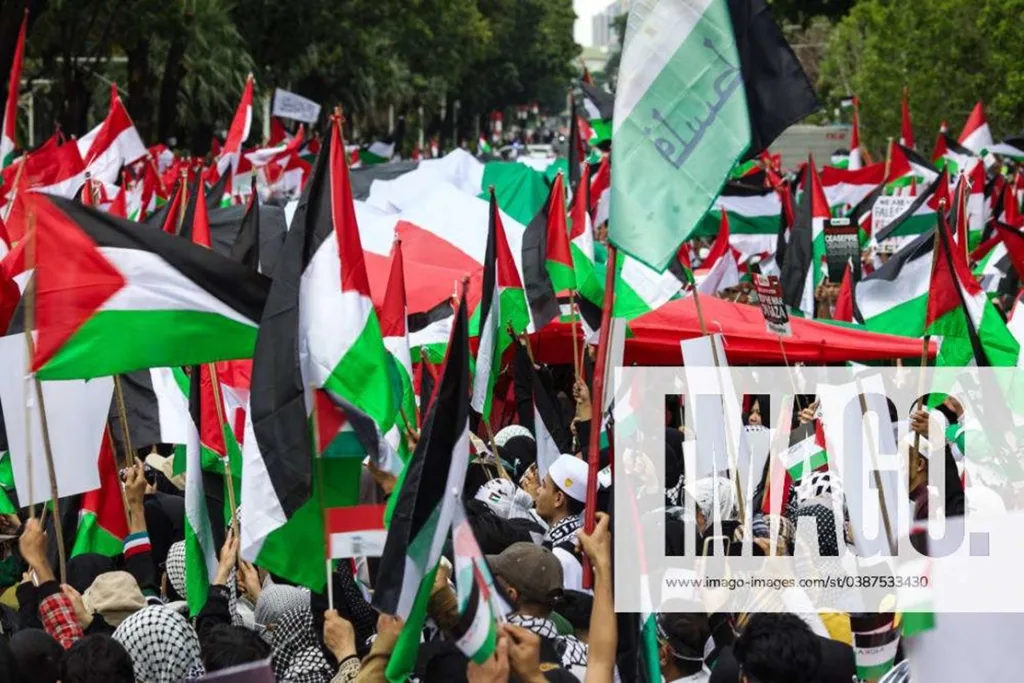
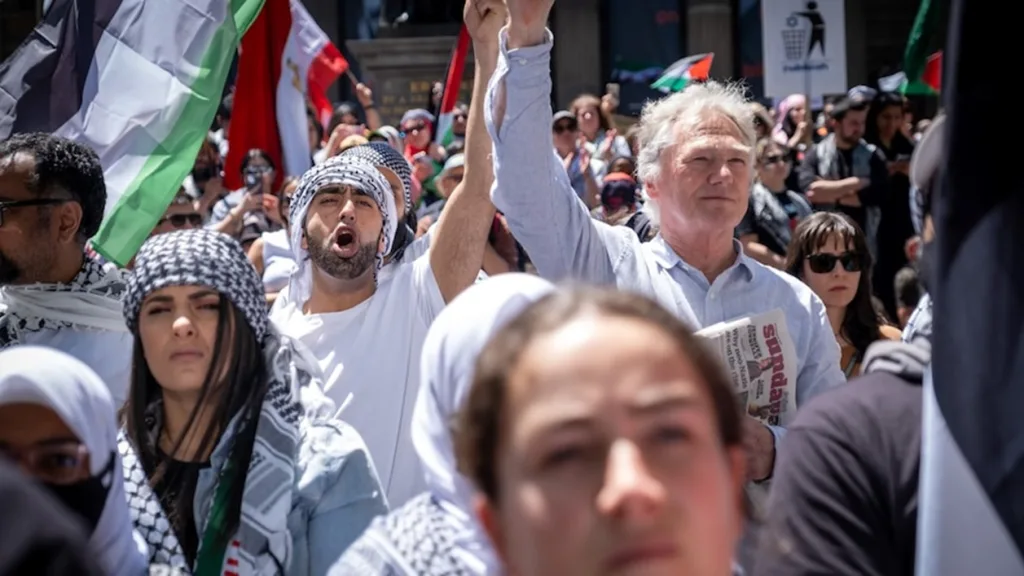
Confronting Opposition and Upholding Non-Violence
Despite the peaceful nature of the demonstrations, a heavy police presence and counter-protests by pro-Israeli groups ensued. Accusations of anti-Semitism and supporting terrorism were hurled at the pro-Palestinian protesters.
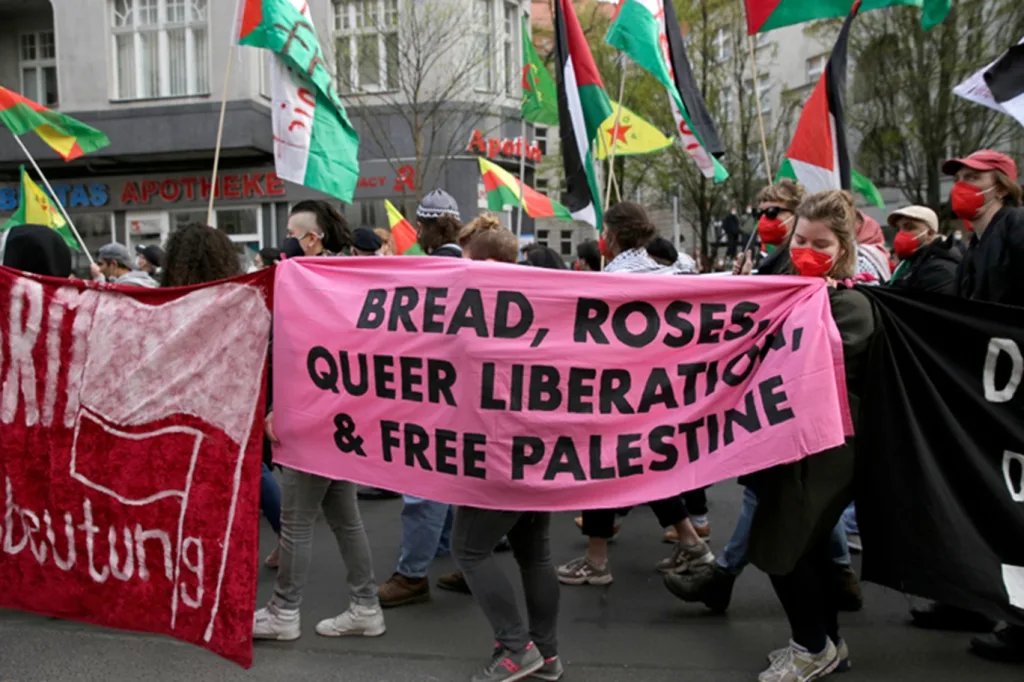
In the face of adversity, the pro-Palestinian activists maintained their commitment to non-violence, denouncing attempts to stifle their voices. They emphasized that their critique of Israel was rooted in principles of human rights and international law, distancing it from hatred or bigotry.
The Global Movement and Its Roots
The global day of protests marked a significant chapter in the ongoing international movement in solidarity with Palestine. This momentum has surged in recent years, fueled by an increased awareness of the Palestinians’ plight and a growing disillusionment with diplomatic efforts to resolve the conflict.
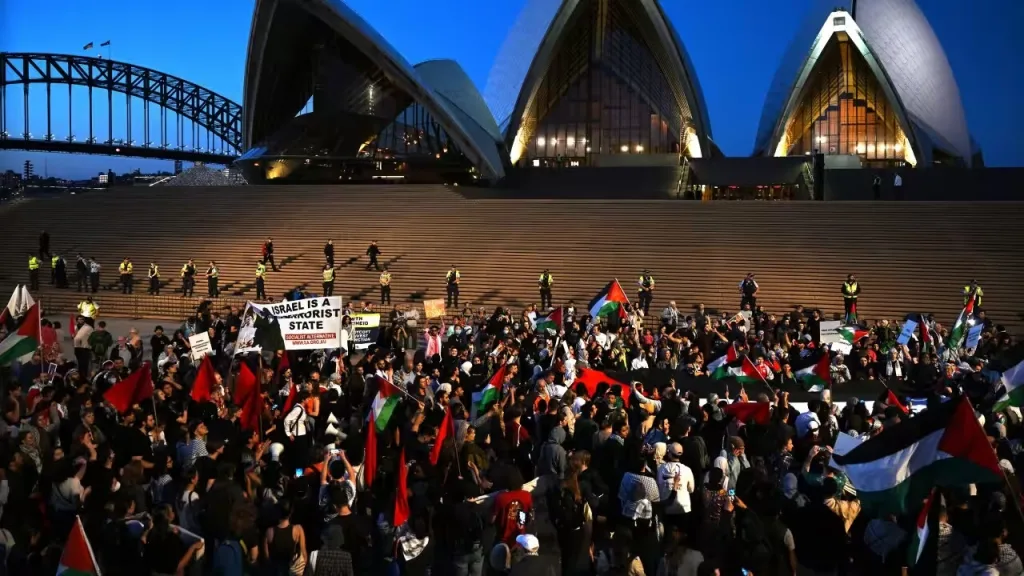
The protesters voiced their hope that their collective actions would exert pressure on governments and institutions to take tangible steps toward ending the Israeli occupation and supporting Palestinian rights.
Unveiling the Palestinian Cause
The term “Palestinian cause” encapsulates the political and social aspirations of a people enduring decades of Israeli occupation and oppression. Rooted in the demand for self-determination, sovereignty, justice, and dignity, it has garnered global support through diverse forms of activism.
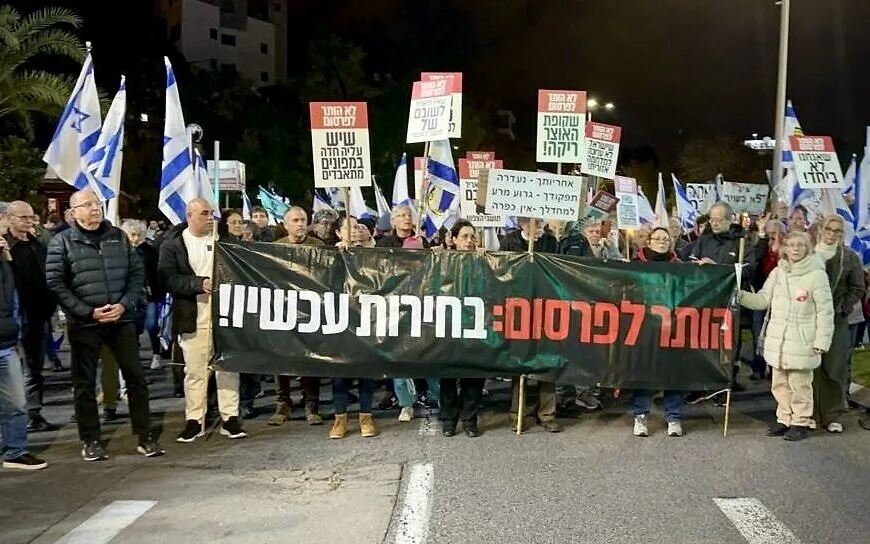
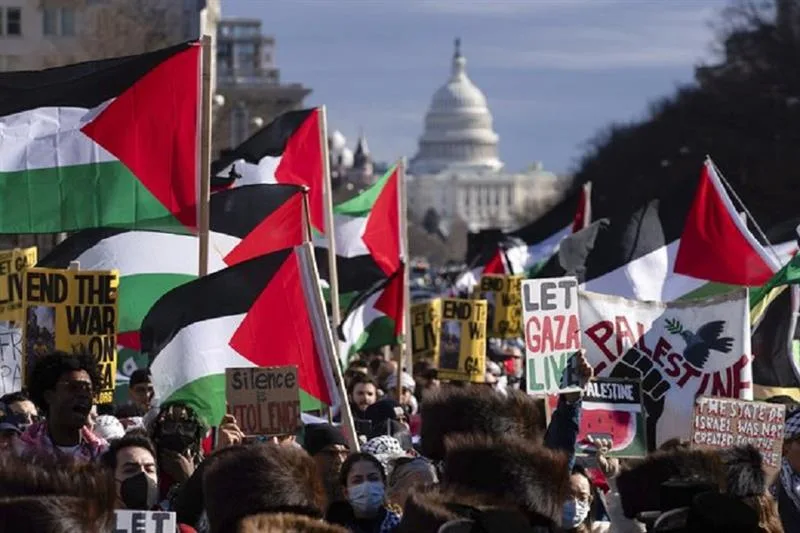
Protests, boycotts, divestments, sanctions, petitions, donations, education, and awareness campaigns have all played a role in expressing solidarity with the Palestinian struggle.
Controversies and Opposition
The Palestinian cause, while drawing support globally, is not without its controversies and conflicts. Opposed by Israel and its allies, the legitimacy of Palestinian demands is questioned, with claims of being unrealistic and threatening to Israel’s security.
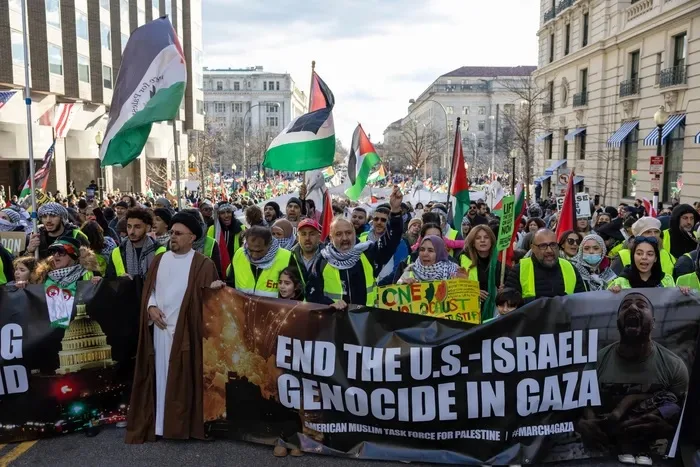
Accusations of anti-Semitism, anti-Israel sentiments, and pro-terrorism labels have been used to discredit, suppress, or criminalize pro-Palestinian activists.
Dynamics within the Movement
Far from a monolithic entity, the Palestinian cause is a dynamic and diverse movement encompassing varying perspectives, opinions, and strategies.
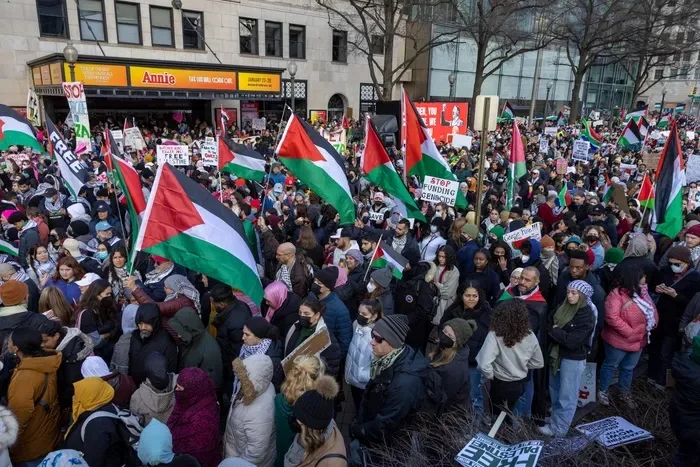
Key debates include the nature and form of the desired Palestinian state, the role and legitimacy of Palestinian leadership, and methods of resistance and negotiation. Coordination with regional and international actors adds complexity to the movement’s landscape.
The Urgency for Resolution
The Israeli-Palestinian conflict, embedded in a deep historical, political, social, and cultural context, demands a nuanced understanding. Urgent and vital, the complex issue necessitates a just and peaceful resolution that respects the rights and dignity of both Palestinians and Israelis.
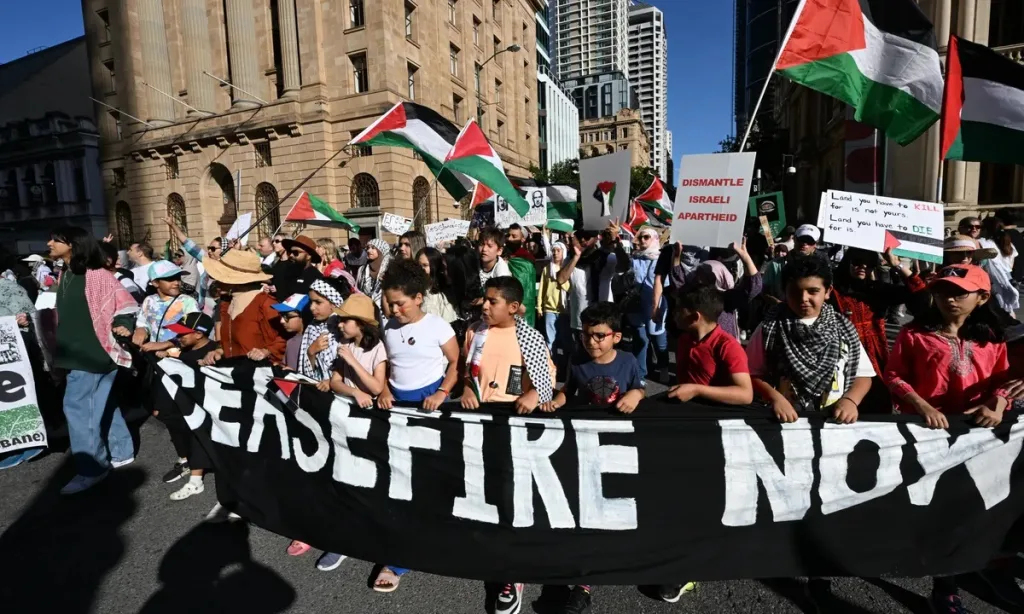
In exploring the unprecedented pro-Palestinian movement from Washington to the world, it becomes evident that the collective call for justice resonates globally. As we delve into the multifaceted layers of the Palestinian cause, it is crucial to comprehend the intricacies and challenges inherent in this ongoing struggle for a brighter, more equitable future.
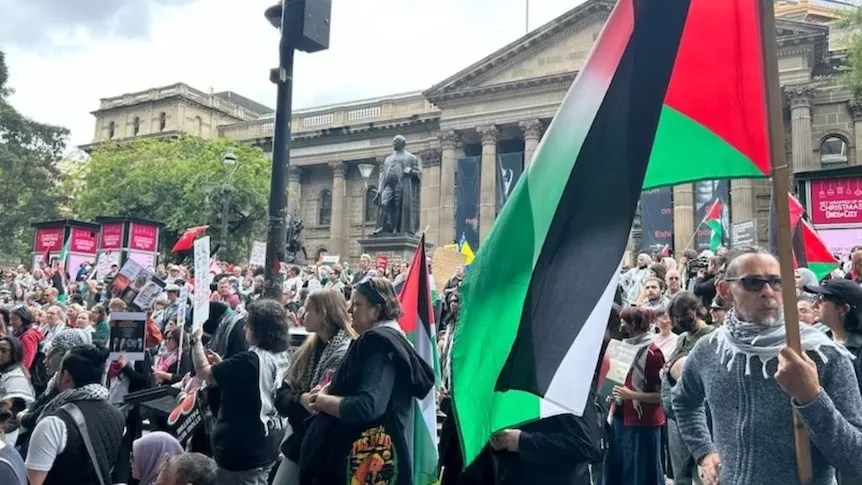
Learn more about the Israeli-Palestinian conflict: Wikipedia, The Guardian, Palestine News www.opb.org, usatoday, Washington Post and Reuters. For more information, so please visit this link.
,
Frequently Asked Questions (FAQs) – Understanding the Pro-Palestinian Movement
1. What triggered the global day of protests for the Palestinian cause on January 13, 2024?
The protests were a response to the longstanding Israeli occupation and oppression of the Palestinian people. Thousands took to the streets worldwide to express solidarity and demand an end to these injustices.
2. Who organized the global day of protests, and what were their primary demands?
The protests were organized by a coalition of civil society groups, human rights organizations, and political parties. Their demands included an end to the Israeli occupation, recognition of Palestinian statehood, and the right of return for Palestinian refugees.
3. How diverse were the participants in the protests, and what symbols were prevalent?
Participants came from diverse backgrounds, ages, religions, and ethnicities, emphasizing the global nature of the movement. Symbols such as “Free Palestine,” “Stop the Apartheid,” and “Boycott Israel” were prevalent on banners, flags, and placards.
4. How did the pro-Palestinian protesters respond to accusations of being anti-Semitic or supporting terrorism?
The pro-Palestinian activists maintained a non-violent stance and denounced attempts to silence their voices. They clarified that their criticism of Israel was rooted in principles of human rights and international law, not in hatred or bigotry.
5. What impact did the protests aim to achieve on governments and institutions?
Protesters expressed hope that their actions would exert pressure on governments and institutions to take concrete steps toward ending the Israeli occupation and supporting Palestinian rights.
6. How has the international movement in solidarity with Palestine gained momentum in recent years?
The movement has gained momentum due to increased global awareness of the plight of Palestinians and dissatisfaction with diplomatic efforts to resolve the conflict.
7. What does the term “Palestinian cause” encompass?
The Palestinian cause refers to the political and social aspirations of the Palestinian people living under Israeli occupation. It is rooted in the demand for self-determination, sovereignty, justice, and dignity.
8. How has the Palestinian cause been supported globally?
People worldwide have expressed solidarity through various forms of activism, including protests, boycotts, divestments, sanctions, petitions, donations, education, and awareness campaigns.
9. Why is the Palestinian cause a source of controversy and conflict?
Opposition from Israel and its allies claims that Palestinian demands are illegitimate, unrealistic, and threatening to Israel’s security and existence. Accusations of anti-Semitism and supporting terrorism have been used against pro-Palestinian activists.
10. Is the Palestinian cause a unified movement, or are there internal debates and diversity within it?
The Palestinian cause is not monolithic; it is a diverse and dynamic movement with debates on the nature of the desired Palestinian state, the legitimacy of leadership, methods of resistance and negotiation, and relationships with other regional and international actors.
11. Why is the Israeli-Palestinian conflict considered a complex and challenging issue?
The conflict is deeply rooted in historical, political, social, and cultural contexts, demanding a nuanced understanding. Urgent and vital, it requires a just and peaceful resolution that respects the rights and dignity of both Palestinians and Israelis.
12. Where can I learn more about the Israeli-Palestinian conflict?
For more information, you can explore reputable sources such as Wikipedia and The Guardian.

